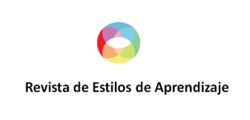Beliefs of Secundary School teachers-in-training about chess and the 17 Goals to Transform Our World

Santágueda-Villanueva, M.
Juan-Verdoy, P.
Lluch Perís, A. M.
Palabras clave: games, sustainable development, teachers, chess
The study delves into the incorporation of chess into teacher training programs to bolster the competencies of future educators, with a specific focus on enhancing computational thinking (CT) and unplugged computational thinking (UCT) skills while aligning with the United Nations’ 17 Goals to Transform Our World. Utilizing a phenomenological approach, data was gathered from 45 master’s students through a questionnaire. The findings showcase diverse perceptions of chess among participants, with notable attention given to its gaming dynamics, cognitive advantages, and inclusive characteristics. Moreover, the study identifies a prevailing lack of confidence among respondents in playing chess, underscoring the need for additional training initiatives. Overall, the findings underscore a growing interest among educators in harnessing chess as a pedagogical tool to address overarching societal objectives, notably in the realms of educational quality and gender equality.





